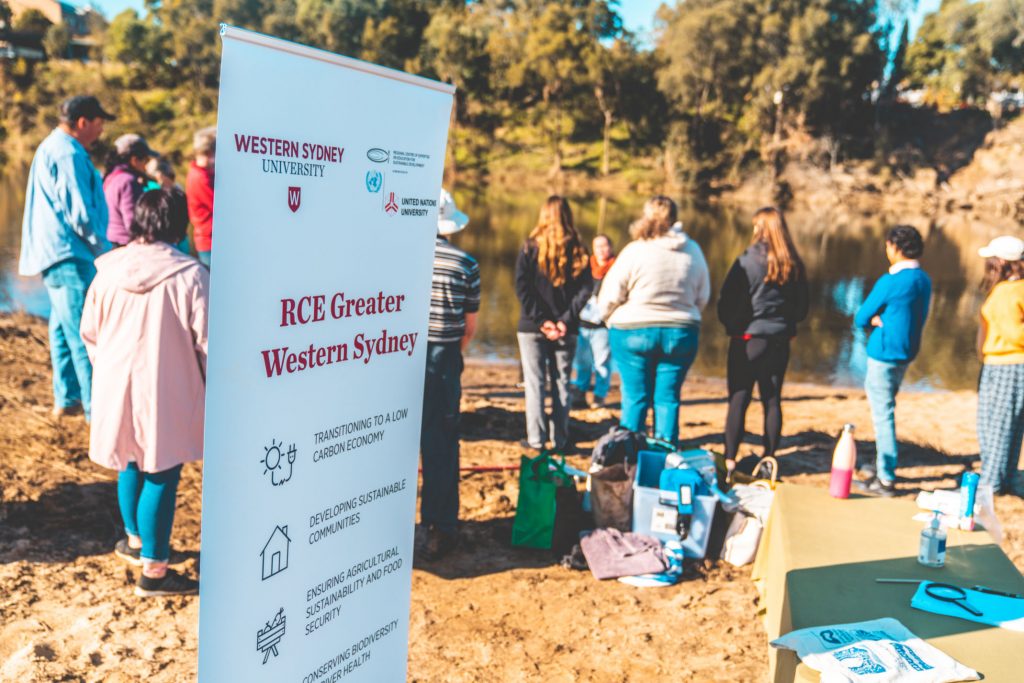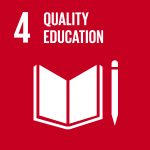Esta web utiliza cookies para que podamos ofrecerte la mejor experiencia de usuario posible. La información de las cookies se almacena en tu navegador y realiza funciones tales como reconocerte cuando vuelves a nuestra web o ayudar a nuestro equipo a comprender qué secciones de la web encuentras más interesantes y útiles.
Linking and leveraging multi-stakeholder networks for local ESD impact
Description
Institution
Western Sydney University

Organizations/areas of the university involved
Western Sydney University – Sustainability Education, Office of the Pro-Vice Chancellor, Learning Futures
Country
Australia
Hosted by Western Sydney University, the RCE Greater Western Sydney network has been building collaborative place-based, partner-led programs and initiatives for 10-years to accelerate and mainstream ESD in our region.
Coordinated by the United Nations University Institute for the Advanced Study of Sustainability (UNU-IAS) at the global level, Regional Centres of Expertise (RCE) on Education for Sustainable Development (ESD) are multi-stakeholder networks of existing formal, non-formal and informal organisations working together to facilitate ESD learning and action in a local setting (UNU-IAS, 2021).
RCE Greater Western Sydney (RCE-GWS), auspiced and hosted by Western Sydney University, is situated in one of Australia’s most rapidly growing regions in Australia facing many social, cultural, economic and ecological sustainability challenges. As an anchor institution in the region the University brought together key partners to strategically link, leverage and strengthen work that was already happening in parallel. Endorsed by the UNU-IAS in 2011, RCE-GWS network has built collaborative and innovative place-based programs and initiatives for 10-years. Our 23 external partners include the region’s educational institutions, non-government/non-profit organisations, school networks, community groups, local government, and government agencies. Our initiatives are developed by our partners in collaboration with each other and focused on formal and informal education for school students, university students and community members. These initiatives are a combination of in-kind, internally and externally funded collaborations, ranging from professional development days for teachers to larger scale whole of region engagement programs. Our aim is to educate and empower local people to take action in their local places.
Our strategy for implementation has been to collectively work to address our regional challenges identified as a network to deliver local impact. Since the launch of the global SDG 2030 agenda our areas of focus have been realigned to the global goals. Our current collaborate initiatives fit under three thematics and are underpinned by the cross cutting SDG 4 and 17:
- Urban Heat and Climate Action (SDG 7, 11 and 13),
- Food Justice and Sustainable Agriculture (SDG 2 and 12), and
- Urban Biodiversity and Riparian and River Health (SDG 6, 14 and 15).
The RCE-GWS network is embedded in our institutional educational commitment to the SDGs. RCE-GWS is one of 179 RCEs globally and is part of the global learning space for SDGs.
Results and impact measured or expected
RCE-GWS has delivered 27 collaborative sustainability programs and initiatives since its inception in 2011. This has included outreach activities such as Schools for Sustainability fostering environmental stewardship with 60 local high school student leaders in partnership with local government; a 2-day Wetlands for the West community workshop attracting over 100 residents, environmental volunteers, industry professionals and Western academics and students; the award-winning, curriculum-based Youth Eco Summit engaging over 10,000 school students and their teachers; and our global RCE SDG Youth Challenge which has mobilised action for the SDGs through 138 youth leaders engaging over 20,000 youth in 12 countries, led by Western Sydney University. Our recent initiative, the Hawkesbury Resilience Project, is taking a whole-of-area approach and is expected to reach over 6,000 residents and is in partnership with five key organisations include a youth advocacy group and local government. Most projects have involved an evaluation process and reporting, with particular emphasis on the learner outcomes.

Connection with the SDG framework
As an endorsed RCE, our remit is in supporting ESD via the Global Action Programme (GAP) and SDGs, specifically through SDG 4.7 ensuring ‘all learners acquire the knowledge and skills needed to promote sustainable development …’ (United Nations, 2015). RCE-GWS brings together multiple stakeholders from different educational sectors to collaborate on and mobilise ESD initiatives across Western Sydney. It also generates a space to collectively contribute, learn, share and discuss the SDGs within our network. Within the university RCE-GWS provides the unique opportunity to initiate and facilitate leadership, engagement and action through discourse, education and stewardship on the importance of the SDGs and their implementation for our region and beyond. This has resulted in a number of our partners – local governments and school networks – adopting and positioning the SDGs as part of their own strategic plans. It has also provided authentic, transformative learning opportunities for Western’s students to engage meaningfully with the SDGs.
Barriers and follow up
RCE-GWS, auspiced by Western Sydney University, brings together 23 external stakeholders who were already working is parallel with representatives across the University. This has been beneficial for applying for competitive grants, working at scale across the region and supporting the existing work of our partners. However, it does add to the workload of individuals committed to the network. Our governance structure constitutes the central leadership of the RCE-GWS network and represents the interests of our members, other than just the University. This governance model shares the responsibility of the operations and functions of the larger group, including endorsing new RCE-GWS partners applications, identifying potential projects, and determining key directions based on of widespread input of our larger group (i.e. our core areas of impact). We also undertake a membership and governance committee refresh every two to three years to revitalize the network with either new representatives or organisations.
Transferability of the initiative
RCE-GWS is one of five RCEs in Australia, and one of 179 RCEs endorsed globally (as of December 2020) – the majority of which are hosted by higher educational institutions. While UNU-IAS does not provide project funding, it does offer a network to build meaningful partnerships with other universities and educational organsations at a local, regional and international level – all of who are committed to the implementation of the SDGs. RCE-GWS has strong links with the Asia-Pacific RCE network, which in turn has created a number of curricular and co-curricular student opportunities; a platform to demonstrate our leadership by hosting the 11th RCE Meeting and Conference on ‘Mainstreaming the SDGs’ in 2018; and co-delivery of a virtual showcase of best practice on ESD through global seven-part COVID-19 webinar series. Interested institutions or organisations can apply to become an RCE through an open call by the UNU-IAS annually.
Education 4 SDG funciona gracias a WordPress

